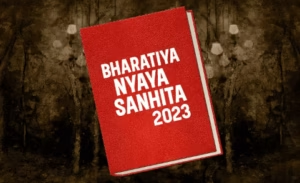Introduction:-
The legal landscape of domestic violence in India is evolving. In a significant and progressive judgment titled as Chandrakant Mahilange vs. Smt. Nageshwari Gahne (WP227 No. 612/2025), the Chhattisgarh High Court has brought attention to a new form of abuse: forcing a wife to share her mobile phone or bank passwords. The Hon’ble Court ruled that forcing a wife to share her mobile phone or bank passwords constitutes domestic violence. The court recognized this coercion as a violation of privacy, autonomy, financial independence, falling under economic and emotional abuse.
This ruling reflects India’s evolving legal understanding of digital rights within marital relationships and comes under the ambit of the Protection of Women from Domestic Violence Act (PWDVA), 2005, while being supported by the newly enacted Bharatiya Nyaya Sanhita (BNS), Bharatiya Nagarik Suraksha Sanhita (BNSS), and Bharatiya Sakshya Adhiniyam (BSA)—which came into force on 1 July 2024.
Legal Framework
1. Protection of Women from Domestic Violence Act, 2005:-
Under Section 3 of PWDCA, domestic violence includes: Physical, sexual, verbal, emotional, and economic abuse.
Economic abuse covers: Denying/restricting access to financial resources, Forcing control over a woman’s earnings, Insisting on disclosure of passwords or bank credentials against her will.
Emotional abuse includes: Humiliation, Threats and Repetitive controlling behavior.
Forcing a spouse to share passwords or personal digital data without consent violates her dignity, autonomy and mental peace, and is now judicially recognized as emotional and economic abuse. This provides the foundation for the court’s ruling that digital coercion equals domestic violence.
2. Bharatiya Nyaya Sanhita (BNS), 2023:- Replaces the Indian Penal Code (IPC). Relevant sections include:
🔹 Section 80 – Cruelty by Husband or His Relatives- “any wilful conduct likely to drive the woman to commit suicide or cause grave injury or danger to life, limb, or mental or physical health.”
Punishes any act causing mental or physical cruelty. Covers emotional harassment like digital surveillance or control
🔹 Section 73 – Stalking (including Digital stalking/cyberstalking):- Includes repeated monitoring of a woman’s phone or online accounts and forced access to devices. Applicable when husband or in-laws intrude into personal data
🔹 Section 69 – Assault or Criminal Force with Intent to Outrage Modesty:- Can include coercive or threatening gestures while forcing digital access
🔹 Section 352 – Intentional Insult to Provoke Breach of Peace:- If abuse includes humiliating, degrading, or accusatory words tied to digital snooping
🔹 Section 354 – Insulting the Modesty of a Woman:- Applies to humiliation in private or public through coercive or disrespectful conduct. It can apply if the coercion involves threats, accusations or gestures that humiliate or violate her modesty or personal dignity.
3. Bharatiya Nagarik Suraksha Sanhita (BNSS), 2023:- Replaces the Code of Criminal Procedure (CrPC). Important provisions:
🔹 Section 35 – Reporting and Registration of Offences:- Mandates that police must register FIR promptly in cognizable offences (e.g., cruelty, stalking)
🔹 Section 193 – Protection of Victims during Trial:- Ensures the woman’s identity and testimony are protected during proceedings
🔹 Section 176(2) – Arrest Without Warrant:- Allows police to arrest the accused without warrant in domestic violence cases if there’s immediate danger
🔹 Section 219 – Victim’s Right to Be Heard:- Gives the victim an active role in trial and investigation stages.
4. Bharatiya Sakshya Adhiniyam (BSA), 2023:– Replaces the Indian Evidence Act, 1872. Key provisions helpful in digital abuse cases:
🔹 Section 63 – Electronic Records as Evidence:- Accepts mobile screenshots, WhatsApp chats, bank transaction history as admissible evidence
🔹 Section 85 – Presumption Regarding Electronic Messages:-Burden shifts to the accused to disprove digital evidence if shown to originate from them
🔹 Section 86 – Presumption of Electronic Agreements:-If coercion or digital consent is claimed, onus on husband to prove free will.
Judicial Precedents Supporting Digital Autonomy
- Justice K.S. Puttaswamy (Retd.) vs. Union of India (2017):-Supreme Court ruled Right to Privacy is a fundamental right under Article 21 – Applies within personal relationship too.
- Joseph Shine vs. Union of India (2018):- Marriage does not mean surrendering individual autonomy
- Shafin Jahan vs. Asokan K.M. (2018):- Recognized the independent choices of women in marital and digital spaces- no one can forcefully interfere.
- Chandrakant Mahilange vs. Smt. Nageshwari Gahne (2025):- Held that forcing password disclosure without consent is domestic violence
Real-Life Example (Based on the Judgment):-In this case, the wife alleged that her husband: Regularly forced her to unlock her phone and social media accounts, Insisted on bank password access, Accused her of infidelity without evidence and Created a mentally abusive environment The court ruled that this behavior violated her dignity, emotional peace, and financial freedom, amounting to domestic violence.
Legal Remedies for the Victim:- Women facing such abuse can:
File a complaint under PWDVA, 2005
File FIR citing: BNS Section 80 (Cruelty), BNS Section 73 (Cyberstalking), Submit digital evidence under BSA Sections 63 & 85, seek criminal charges for humiliation or threats (sec 69, 352 and 354)
Seek: Protection order, Monetary compensation, No-contact/residence orders through the Magistrate or Family Court. Also, free legal aid, counseling and shelter homes are available via National and State legal Services Authorities.
Conclusion:- The digital age has added new dimensions to domestic violence. As seen in the Chhattisgarh High Court’s progressive judgment, controlling a woman’s digital access, violating her privacy, or demanding passwords is not just unethical but legally punishable. This legal recognition empowers women to stand against subtle forms of control that often go unreported. It also reminds society that respect, trust, and consent—not coercion—form the foundation of a true partnership in marriage. This landmark judgment, titled as Chandrakant Mahilange vs. Smt. Nageshwari Gahne (WP227 No. 612/2025), and the legal provisions under BNS, BNSS, and BSA affirm that marriage is not ownership, and privacy is not negotiable. Whether it’s physical abuse or digital coercion, any violation of a woman’s personal space is now legally recognized and punishable.
The Indian judiciary and laws are now aligned with modern social realities, ensuring women are protected in both physical and digital realms.





